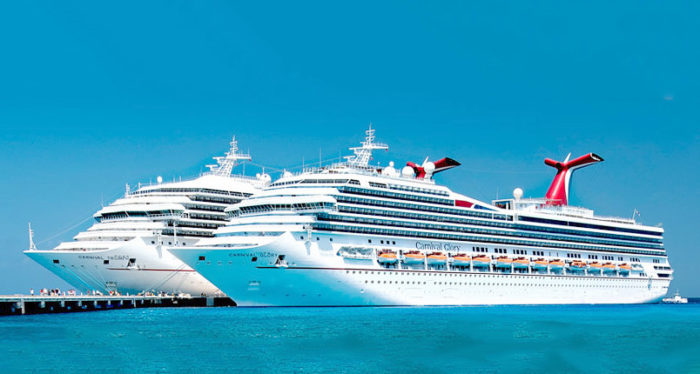Carnival Corporation presented the results of an independent, two-year scientific wash-water study that shows its scrubbers are a safe and effective means for compliance with IMO’s 2020 requirements, which include regulations for cleaner air emissions and strict wash-water quality standards.
The study found that the wash-water samples from scrubbers were below the limits that numerous major national and international water quality and land-based water discharge standards have established.
[smlsubform prepend=”GET THE SAFETY4SEA IN YOUR INBOX!” showname=false emailtxt=”” emailholder=”Enter your email address” showsubmit=true submittxt=”Submit” jsthanks=false thankyou=”Thank you for subscribing to our mailing list”]
The two-year study included 281 wash-water samples from 53 Carnival Corporation ships equipped with the systems. The samples were analyzed by independent laboratories accredited by ISO, using standardized EPA methods. After that, DNV GL reviewed the laboratory test data, comparing the results to major point source discharge limits and water quality standards.
The study showed that the quality of the water used in scrubbers was always far below the IMO monitoring limits for polycyclic aromatic hydrocarbons (PAHs) and the annual limits for nitrates. Specifically, when measured against IMO standards, the average wash-water test results in this study were more than 90% lower than maximum allowable levels. In many cases, the materials were completely undetectable in the laboratory testing process.
What is more, the report compared the samples to certain national and international water quality benchmark standards, including the German Waste Water Ordinance, the EU Industrial Emissions and the Surface Water Standards of the EU’s Water Framework Directive. The World Health Organization’s (WHO) drinking water guidelines were also taken into consideration. The scrubbers test results compared favorably with all of these benchmark standards, indicating that the composition of the water was not only consistently below, but in most cases, significantly below the most stringent limits, as well.
The results of this and previous studies on scrubbers have presented similar results about the quality of water that these systems return to the sea, confirming that scrubbers can be suitable for compliance with the 2020 sulphur cap. Namely, a study by the Japanese Ministry of Land, Infrastructure, Transport and Tourism on the ‘Impact of EGCS on the Marine Environment,’ showed evidence supporting scrubbers as a safe and effective option for compliance.
Commenting on the results of the report, Mike Kaczmarek, senior vice president for marine technology for Carnival Corporation, said:
We are pleased to see the positive results of this multi-year study, which included in-depth analysis and review from respected independent experts, demonstrating the overall quality of our Advanced Air Quality Systems wash water and further confirming the IMO’s acceptance of these systems for 2020 regulatory compliance
He also added that scrubbers could be better than MGO in some ways, providing cleaner air emissions. Currently, Carnival has installed scrubbers on more than 70 ships in its fleet, and has also used LNG, shorepower and other sustainability initiatives.
The results of Carnival’s study were presented in February,at a technical conference for Clean Shipping Alliance 2020 (CSA 2020). Providing his thoughts on the results of the study, Ian Adams, Executive Director, CSA 2020, stated:
We want to emphasise that this major study was intended to provide an objective assessment of the quality of scrubber wash water through a rigorous comparison to other world water quality standards, and it now represents the largest, most credible and verifiable data set available. And importantly, the results reaffirm that exhaust gas cleaning systems are effective and safe for the ocean environment






























































